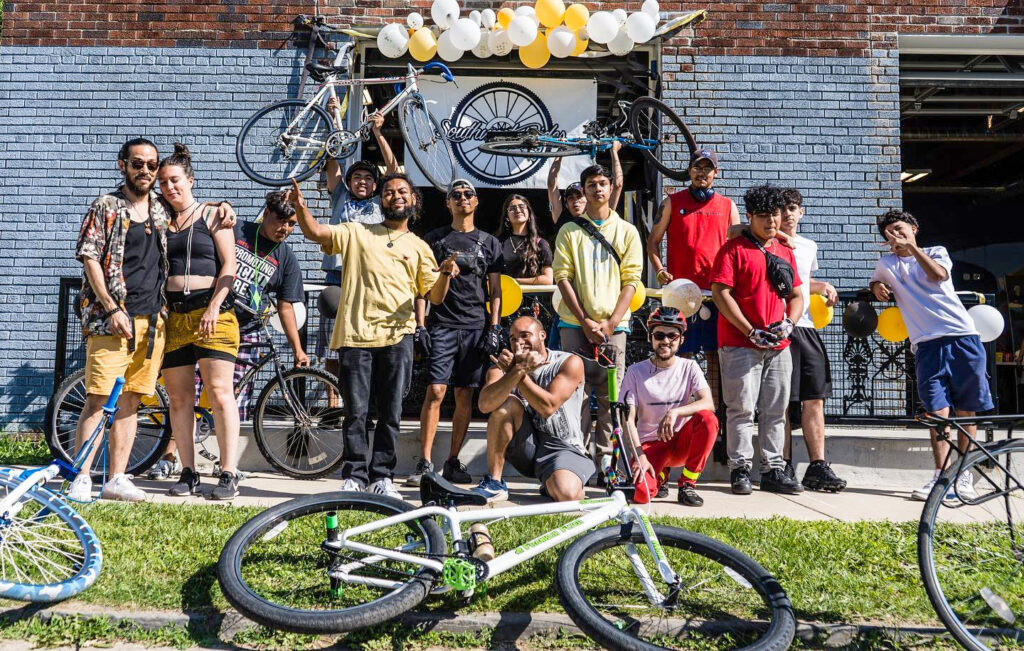Source: Special to Michigan News
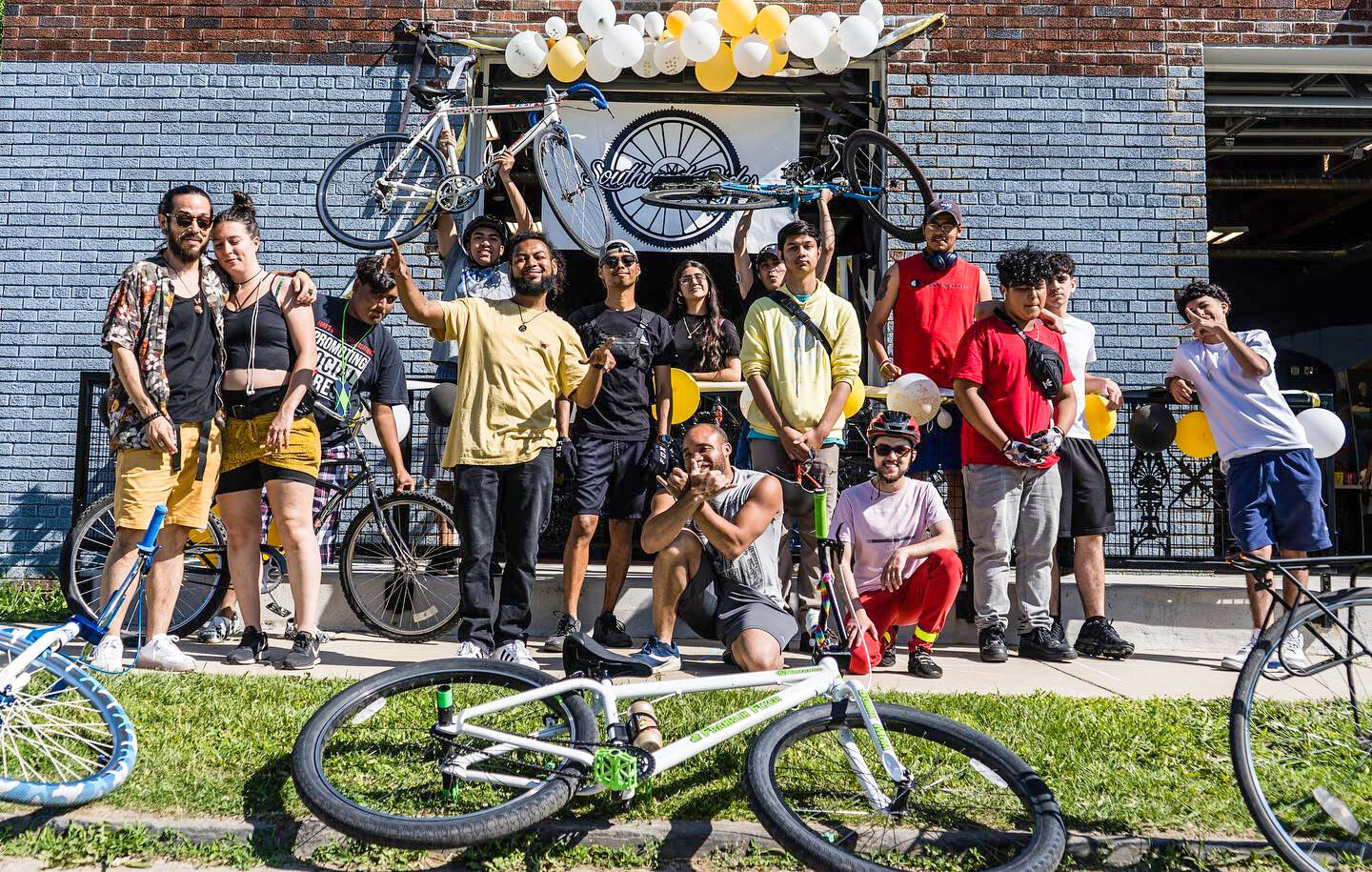
During the summer, UNI’s Southwest Rides team organizes and facilitates community bike rides throughout the community of Southwest Detroit. Courtesy UNI.
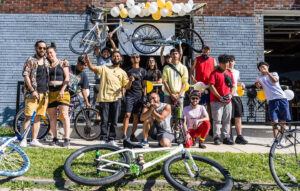
During the summer, UNI’s Southwest Rides team organizes and facilitates community bike rides throughout the community of Southwest Detroit. Courtesy UNI.
Part of helping people thrive is making sure the neighborhoods where they live are thriving too. For the past 25 years, Urban Neighborhood Initiatives has focused on serving the people and places within a 1.4-square-mile-area of the Springwells neighborhood in Southwest Detroit.
Urban Neighborhood Initiatives offer programs related to youth development, education, and land use and economic development. The nonprofit, which was started by the now-closed All Saints Church, serves between 500 and 600 people through direct programming every year, plus hundreds more walk-ins.
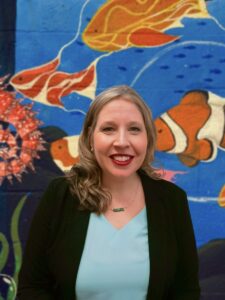
Urban Neighborhood Initiatives
Executive Director Christine Bell. Courtesy of UNI.
Executive Director Christine Bell, who has worked at UNI since 2007, shares how partnering with the University of Michigan has helped the organization scale individual impact into neighborhood-wide change.
Tell us about Urban Neighborhood Initiatives and the work you do.
We want to ensure the physical space of the neighborhood is beautiful, safe and thriving. And we want to bring opportunities into the neighborhood that address the needs, desires, and assets of the people who are here. We work with residents and families to hear from them what they would like to see in our community.
In the education realm, we’re doing after-school and summer programs with tutoring, remediation, and really fun enrichment activities. We helped co-found Every School Day Counts Detroit, which is a coalition focused on decreasing the city’s chronic absenteeism to 15% by 2027. In workforce development, we have a number of internal career pathways, the Southwest Urban Arts Mural Project, the Southwest Food Cultivators, and our social enterprise bike shop Southwest Rides.
We have a land stewardship program that cares for about 1.3 acres of land near our community center. That includes parks, community gardens, a bird bath and butterfly habitat, and vacant lots that residents wanted as green spaces. We are in the process of remodeling our youth programming hub, LOS HQ, which stands for Leaders of Southwest Headquarters. This space was designed by our Youth Advisory Board and community partners to help fill the needs of programming in our community. LOS HQ will serve as the home of the Southwest Community Justice Center, our Southwest Rides bike shop, our Southwest Urban Arts Mural Program, and a youth-run cafe shop.
Our Youth Advisory Board and Engaged Leaders Initiating Tomorrow’s Education (ELITE) programs are focused on advocating for youth in our neighborhoods and school districts. Our Quality Team or “Q Team” trains youth to evaluate the quality of UNI’s programs and disseminate their findings in our annual report. They also create their own research questions and gather information from neighborhood surveys that they conduct.
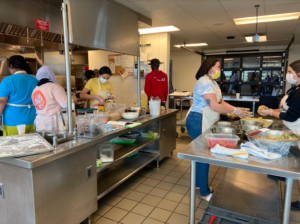
Southwest Food Cultivator program participants attended a cooking workshop in partnership with Eastern Market. Youth learned about Indian cuisine and created Indian-inspired dishes. Courtesy of UNI.
How have you partnered with U-M?
We have been a placement site for the School of Social Work interns for at least 15 years. The social work students have been critical in developing the organization to what it is today and walking alongside me in developing, implementing, and evaluating programs. They’re really involved in the day-to-day and have helped bolster capacity that we needed as we try to fulfill our mission.
We’ve worked with the Program Evaluation Group at the School of Social Work on a number of different projects. They really helped us think through logic models for the outcomes of our programs and how they roll up to moving the neighborhood forward. We worked with Katie Richards-Schuster on developing our Quality Team, and then we trained other organizations on the youth evaluation model that we created. I’m on the advisory board for Trina Shanks’ Center for Equitable Family and Community Well-being. We’ve had urban planning students help us think through land-use strategies. We’ve partnered with Poverty Solutions on workforce development. We also worked with Michigan Ross students to develop onboarding systems, because we nearly doubled our staff right before COVID-19. And in our mental health work, we’ve done some work with TRAILS.
What do you value most about your partnerships with U-M?
We value the authenticity of the partnerships. It’s not this sort of extractive behavior going on that sometimes happens between research institutions and community-based organizations. The work we did on how to take program outcomes and roll them up into neighborhood outcomes was critical for us. This was something that UNI struggled with as an organization. We recently were awarded our first federal grant to support our evaluation work, and the work we have done with U-M aided to write this evaluation grant.
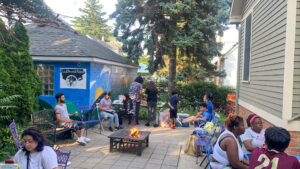
Youth participants gather around a bonfire to make smores and learn more about UNI’s youth employment opportunities. Courtesy of UNI.
What advice do you have for other organizations interested in partnering with U-M?
The faculty we’ve worked with want to see their research work in practice, and for us, that’s really important. I think it’s easy to sit at a university and say, “This is how you should do things,” and it’s a whole different story when you try to put it into practice. So my advice would be to look for faculty where there’s a values-match and priority-match with the organization. I’ve learned that it’s important to be realistic about what students can do to help you move forward. It’s thinking through what you’re asking people to do, recognizing where they are and where you are as an organization, and finding something that helps you move your work forward and also is really aligned with the skill set and the learning. That’s where the magic happens in those relationships.

